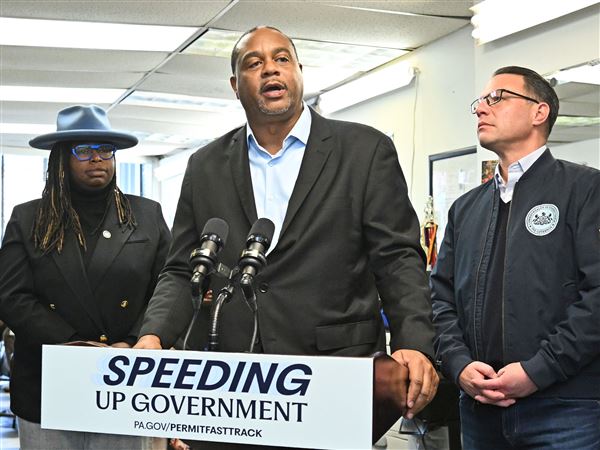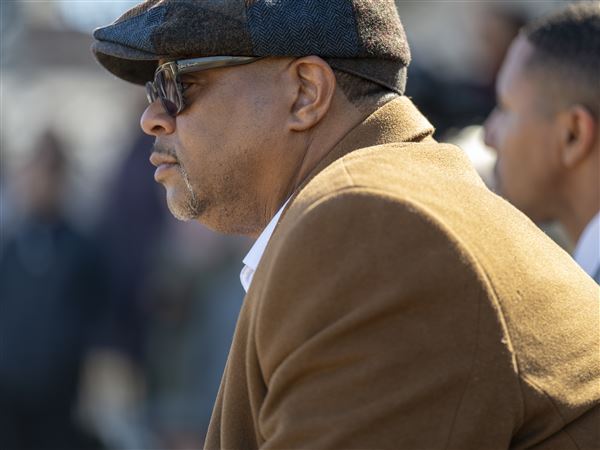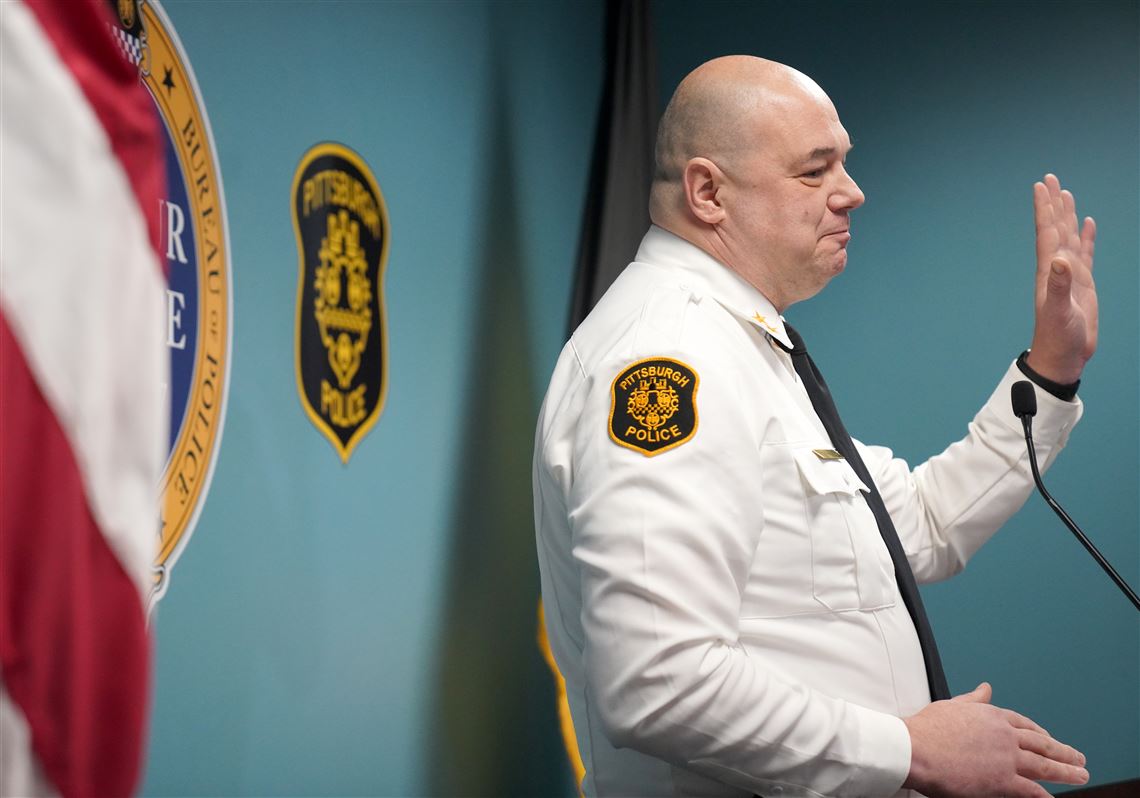The resignation of Pittsburgh Police Acting Chief Christopher Ragland opens yet another chapter in the debilitating crisis of the city’s Bureau of Police. The mismanagement of the department by Mayor Ed Gainey, along with his hand-picked Public Safety Director Lee Schmidt, has left it rudderless and leaderless.
This, in turn, will only accelerate the hemorrhaging of experienced officers, as retirements and resignations continue to outpace meager recruitment.
While crime has not spiked on Mr. Gainey’s watch, that is only a matter of good luck and the dedication of remaining officers. The bureau is in shambles. And there’s no savior on the horizon.
Mr. Ragland’s resignation ensures that Mr. Gainey will have had at least five different police chiefs during a single term in office. After Chief Scott Schubert retired, Thomas Stangrecki served as acting chief. Then after a shambolic national search, Mr. Gainey appointed Chief Larry Scirotto, who resigned after little more than a year to referee NCAA basketball games. This led to Mr. Gainey elevating Mr. Ragland from assistant chief to acting chief.
The fifth is Acting Chief Martin Devine, announced Tuesday. It’s impossible to praise or criticize this choice, because he’s the only available option. That’s because the bureau’s leadership bench has been almost entirely depleted during Mr. Gainey’s term due to resignations and retirements. Mr. Ragland’s resignation leaves the bureau with two assistant chiefs: Mr. Devine and Richard Ford, who is soon to retire.
Further, most of the plausible candidates for promotion — including, according to multiple sources, Mr. Devine — don’t live in the city. While the residency requirement ended for most officers in 2017, the city charter’s language still applies to members of the bureau’s command structure. In fact, it is unclear how Mr. Devine’s promotion to assistant chief was legal in the first place, let alone his elevation to acting chief.
This is a matter City Council should investigate. While no one wants to remove leadership options from the table, the law must be followed.
As for a permanent chief, the city could strike gold within the ranks — Mr. Devine could prove to be a fitting chief hiding in plain sight — or undertake another search process. But that doesn’t guarantee anything, as Mr. Gainey’s first national chief search proved.
The expensive search produced three options: Jason Lando, a former Pittsburgh commander now leading the police of Frederick, Md.; Ryan Lee, the former chief in Boise, Idaho, who had been involved in a training mishap where he broke a fellow officer’s neck; and Mr. Scirotto, whose tenure proved to be an embarrassment after he and Mr. Gainey misled the public about his intention to moonlight on the hardwood.
Mr. Gainey was dogged by rumors he had offered the gig to Mr. Lee before finding out about the neck-breaking incident, and then pivoted to Mr. Scirotto. And Mr. Lando only found out he’d been passed over through the news media. The ridiculous process foreshadowed more turmoil to come.
Officers continue to resign and retire at a record pace. Recruitment classes have been small, and would have been smaller if standards hadn’t been lowered. Forced overtime is necessary and commonplace. The rank and file is cynical and exhausted.
And no one knows what’s next. Several people with direct knowledge of the force contacted by the Editorial Board were at a loss when asked what the next step is. This isn’t like the staffing woes that are affecting city police forces around the country: It’s a unique crisis of leadership and organization that calls the future of the bureau into doubt.
It didn’t have to be this way, and with effective mayoral leadership it wouldn’t have gotten to this point.
First Published: March 5, 2025, 12:29 p.m.
















